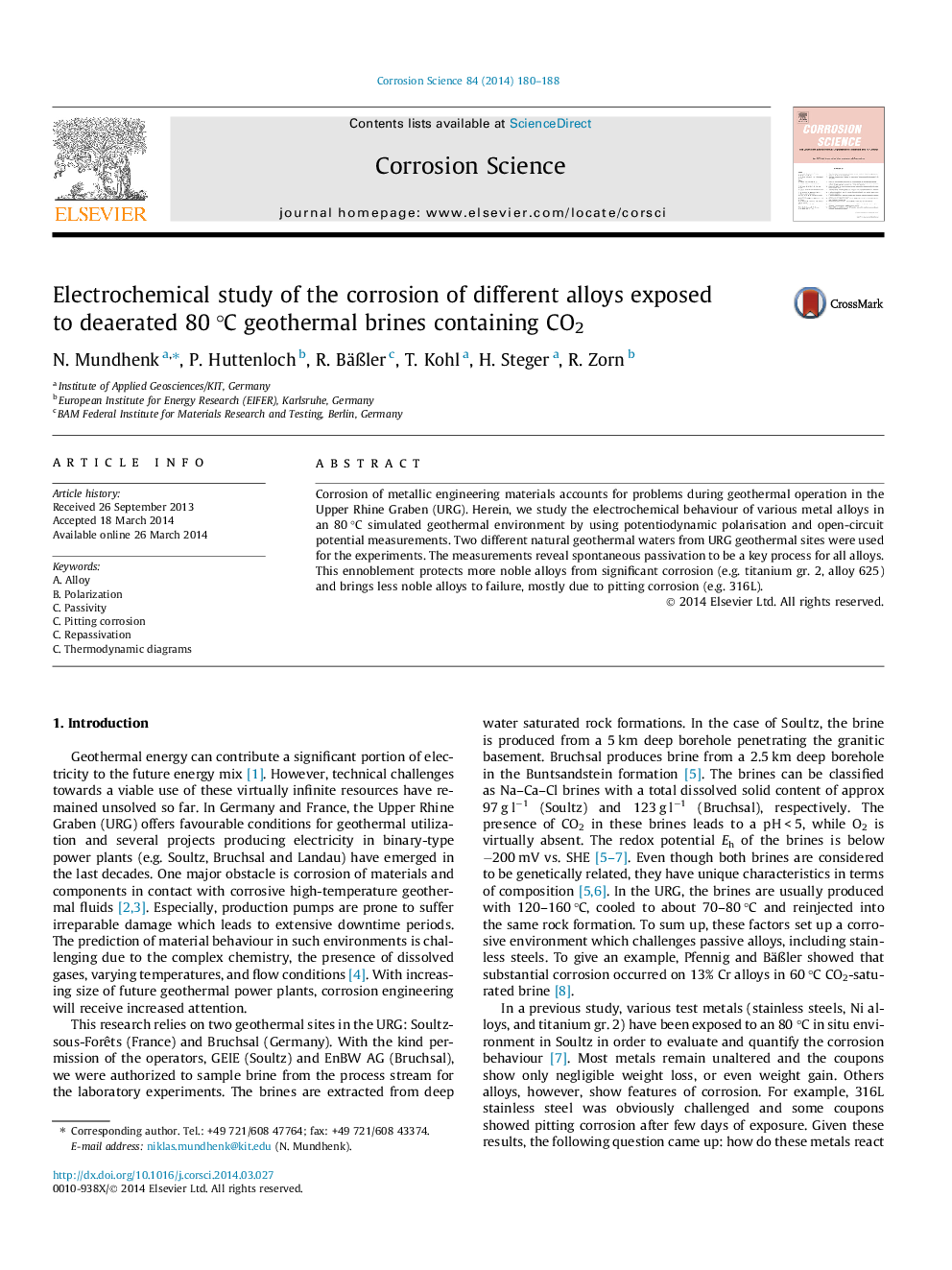| Article ID | Journal | Published Year | Pages | File Type |
|---|---|---|---|---|
| 1468858 | Corrosion Science | 2014 | 9 Pages |
•Lab experiments were performed with natural highly-saline 80 °C geothermal brines.•An individual stability evaluation for a wide range of materials could be derived.•It contains different electrochemical techniques and E-pH diagrams.•Establishes a better understanding of electrochemical processes that occur in brine.•Spontaneous and induced passivation, pitting, and repassivation were studied.
Corrosion of metallic engineering materials accounts for problems during geothermal operation in the Upper Rhine Graben (URG). Herein, we study the electrochemical behaviour of various metal alloys in an 80 °C simulated geothermal environment by using potentiodynamic polarisation and open-circuit potential measurements. Two different natural geothermal waters from URG geothermal sites were used for the experiments. The measurements reveal spontaneous passivation to be a key process for all alloys. This ennoblement protects more noble alloys from significant corrosion (e.g. titanium gr. 2, alloy 625) and brings less noble alloys to failure, mostly due to pitting corrosion (e.g. 316L).
